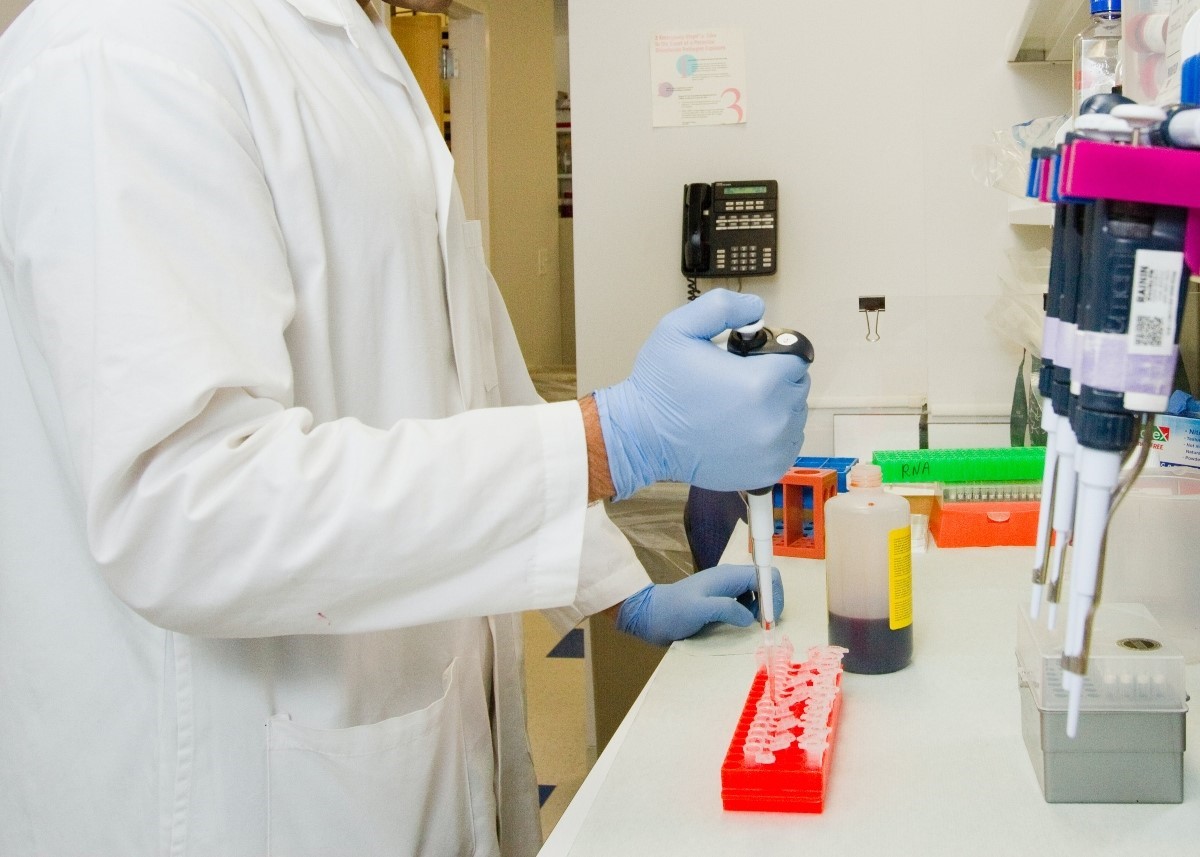Researchers based at the Royal College of Surgeons in Ireland have discovered changes in secondary breast cancer that has spread to the brain, which could make the disease vulnerable to drugs called PARP inhibitors.
Researchers based at the Royal College of Surgeons in Ireland have discovered changes in secondary breast cancer that has spread to the brain, which could make the disease vulnerable to drugs called PARP inhibitors.

Understanding breast cancer in the brain
Researchers, part-funded by Breast Cancer Now, have found new features in tumours donated by patients with secondary breast cancer that has spread to the brain.
These features could make the disease vulnerable to existing drugs and help us further understand how breast cancer spreads to the brain.
With new funding from Breast Cancer Now, Professor Leonie Young is now testing if a drug talazoparib could be used to treat people with secondary breast cancer in the brain.
Looking for genetic answers
To understand the differences between tumours in the breast and the disease when it spreads to the brain, Professor Leonie Young, Dr Nicola Cosgrove, and Walk the Walk Fellow Dr Damir Varešlija analysed samples donated by 45 patients.
They looked at what changes happen when breast cancer spreads to the brain and how tumours in the brain were different between types of breast cancer.
The researchers found that around a third of brain tumours had changes to how they repair DNA when it is damaged. More than half of these were oestrogen receptor positive breast cancers.
In most cases, this is a change that happens when breast cancer spreads from the initial tumour in the breast to the brain and could be a new cancer’s weakness.
Professor Leonie Young, who led the research, further explained these findings: ‘Our research has shown that, in many cases, secondary breast cancer tumours in the brain have changes in the way they repair their DNA and we believe this could make them vulnerable to PARP inhibitor drugs like talazoparib.’
A potential treatment
The team then set out to find further evidence if drugs called PARP inhibitors could work to treat this type of secondary breast cancer in the brain. They performed laboratory experiments with tumour samples donated by patients.
The researchers found that the drugs were effective against such tumour cells with changes to how they repair DNA. Some cancer cells that also had changes to a gene called TP53 didn’t respond to PARP inhibitors, suggesting this treatment may not work for everyone. These results could help inform future clinical trials.
The researchers hope that this early evidence presents an opportunity to extend the benefits of PARP inhibitors to a wider group of people with breast cancer.
The study was funded by Breast Cancer Ireland, Science Foundation Ireland and Breast Cancer Now, and published in the journal Nature Communications. Breast Cancer Now thanks Walk the Walk for making Dr Varešlija’s research possible.
This project is just one of many funded by Breast Cancer Now that hopes to improve life for people with secondary breast cancer. To help us continue this work and help people affected by incurable breast cancer, please consider donating.